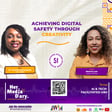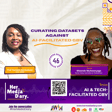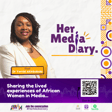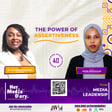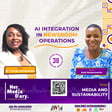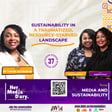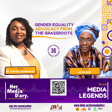
Her Media Diary Episode 48: “Bringing Rigour to African Journalism” with Stephanie Busari
Stephanie Busari is the founder and CEO of SBB Media, an organisation dedicated to ensuring that Africa's stories are authored, owned, and told by those who understand its soul. She is also an Emmy Award-winning journalist and Former Head of Africa digital team at CNN.
In April 2016, she exclusively obtained the “proof of life” video showing that the kidnapped Chibok schoolgirls. This footage was crucial in facilitating negotiations that led to the release of over 100 girls.
In this episode, she talks about the ethics of storytelling, the responsibility of media in times of crisis, and what it takes to lead in international journalism as an African woman. Stephanie, among other things, advises African women to learn the act of putting their hands out to do challenging but impactful work.
Subscribe, leave a review and share this episode with someone who needs to hear it.
If you’d like to join an episode of this podcast, send an email to yemisi@africanwomeninmedia.com. Or visit our website at www.hermediadiary.com
Subscribe and follow Her Media Diary on all your favourite podcast platforms, Also, tune in to our partner radio stations from anywhere across Africa. And don’t forget to join the conversation using the hashtag, #hermediadiary.
